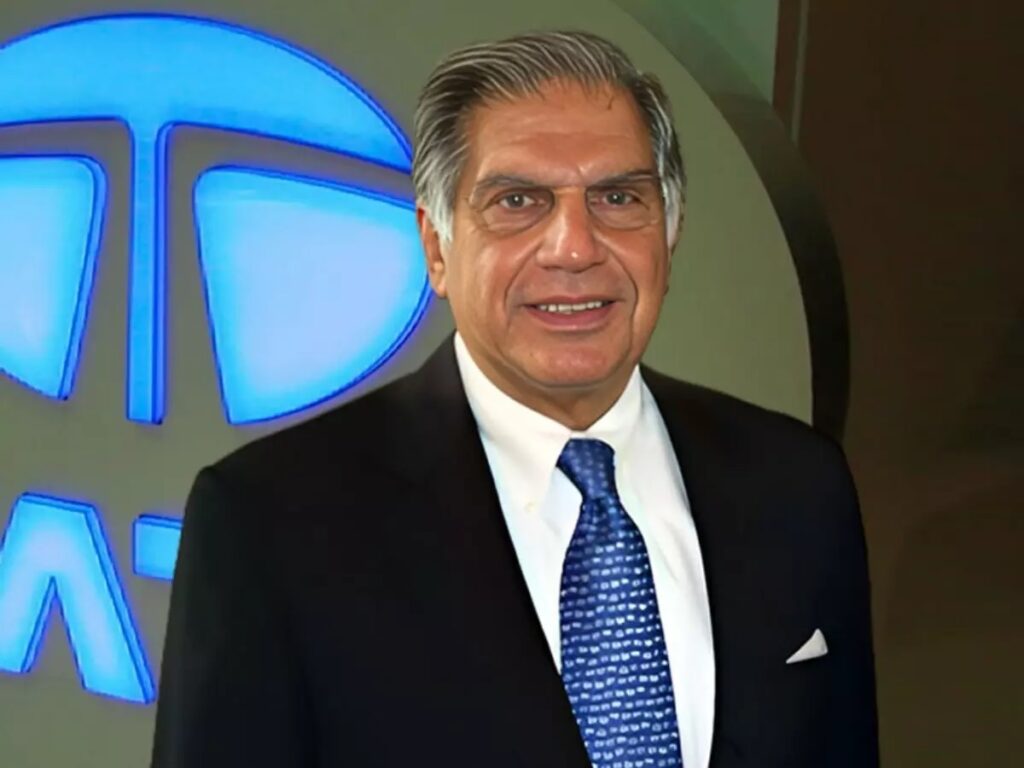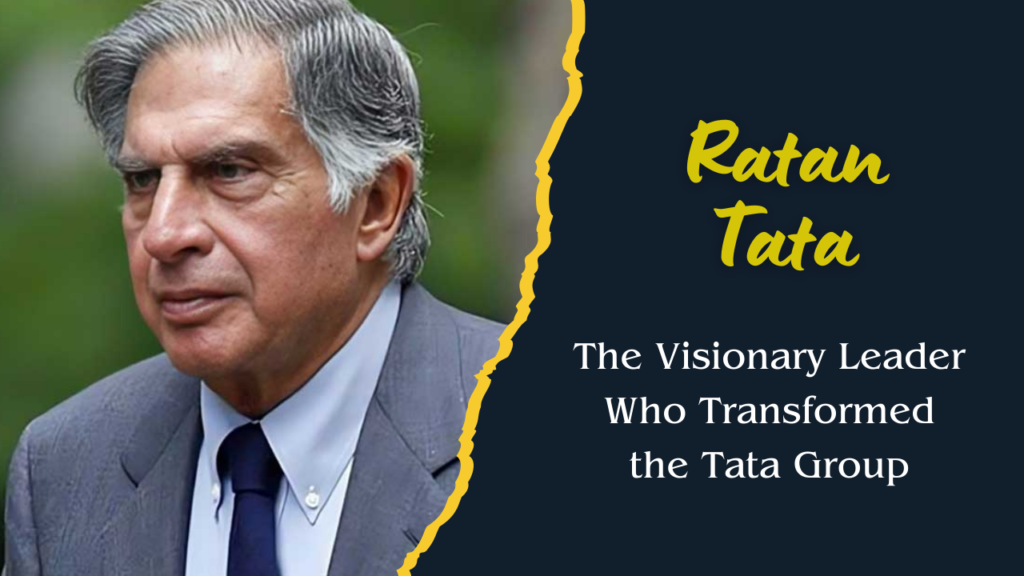Ratan Naval Tata was born on December 28, 1937, in Bombay (now Mumbai), India, to one of India’s most prominent and wealthy families. He is the great-grandson of Jamsetji Tata, the founder of the Tata Group, India’s biggest conglomerate. His father, Naval Tata, was adopted by the Tata family, and his mother was Soonoo Tata. Ratan had a privileged upbringing, but it was marred by his parent’s divorce when he was just 10 years old. He was raised by his grandmother, Lady Navajbai Tata.

Education
Ratan Tata’s education began at the Cathedral and John Connon School in Mumbai. Later, he attended the Bishop Cotton School in Shimla. He completed his secondary education in Mumbai before heading to the United States. 1955 he enrolled at Cornell University, studying architecture and structural engineering. He earned a degree in architecture in 1962.
After completing his undergraduate studies, Tata enrolled in the Harvard Business School and completed an Advanced Management Program in 1975.
Early Career and Entry into the Tata Group
After completing his education, Ratan Tata returned to India in 1962 and began his career at the Tata Group in the Tata Steel division. He worked on the shop floor, shoveling limestone and handling the blast furnace, an experience he later referred to as pivotal in understanding the company’s core.
In 1971, Ratan Tata was appointed the director-in-charge of The National Radio & Electronics Company (NELCO), a struggling Tata company. Despite his efforts to turn around the company, external factors like economic recessions and labor union problems caused NELCO to suffer heavy losses. Although it failed, this experience was crucial for Tata’s growth as a leader.
Becoming Chairman of Tata Group
In 1991, after the retirement of J.R.D. Tata, Ratan Tata became the chairman of the Tata Group, India’s largest conglomerate with businesses in various industries including steel, automobiles, telecommunications, and information technology. His ascension was met with skepticism, as many believed he lacked the experience to run such a massive conglomerate. However, he soon proved his critics wrong.
Major Achievements as Chairman
- Global Expansion: Ratan Tata played a pivotal role in transforming Tata Group from a predominantly India-focused company to a global player. Under his leadership, Tata Group acquired several international brands, including:
- Tetley Tea (UK) in 2000
- Corus Steel (UK) in 2007
- Jaguar Land Rover (UK) in 2008
- Tata Nano: One of Tata’s most ambitious projects was the development of the Tata Nano, the world’s cheapest car, which was aimed at making vehicle ownership affordable for millions of Indians. Although the Nano didn’t achieve commercial success, it was a major technological and symbolic achievement.
- Tata Consultancy Services (TCS): Under Ratan Tata’s leadership, TCS became one of the leading global IT services companies, and it also became the first Indian company to cross $100 billion in market capitalization.
- Social Responsibility: Tata Group, under Ratan’s leadership, continued to invest in various philanthropic ventures. The Tata Trusts, which own the majority of shares in Tata Sons (the holding company of the Tata Group), are heavily involved in health, education, and rural development.
Retirement and Later Years
Ratan Tata stepped down as chairman of Tata Sons in December 2012, at the age of 75, and was succeeded by Cyrus Mistry. However, his influence in the group remained significant. After a contentious boardroom battle, Mistry was ousted in 2016, and Ratan Tata briefly returned as interim chairman until the appointment of Natarajan Chandrasekaran in 2017.
Personal Life
Ratan Tata is known for his simplicity and humility. Despite being one of the wealthiest and most powerful men in India, he leads a relatively modest lifestyle. He never married, and in interviews, he has hinted that he came close to marriage four times but never went through with it for various reasons.
Tata is an avid animal lover and is known for his contributions to animal welfare. He is also a trained pilot and has a keen interest in cars.
Awards and Recognitions
Throughout his career, Ratan Tata has been the recipient of numerous prestigious awards, including:
- Padma Bhushan (2000): India’s third-highest civilian award
- Padma Vibhushan (2008): India’s second-highest civilian award
- Honorary Doctorates from prestigious universities, including Ohio State University and the University of Cambridge.

Legacy
Ratan Tata’s legacy extends beyond business. He is seen as a visionary leader who modernized the Tata Group and helped shape the modern Indian business landscape. He is also respected for his ethical leadership and commitment to corporate social responsibility. Even in his retirement, Tata continues to be an influential figure in Indian business and philanthropy.



